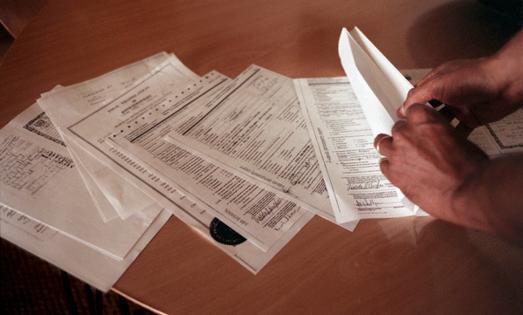Visitors to the US on business and tourist visas may have to pay $15,000 bonds
Published in News & Features
Some international visitors to the United States might be required to pay up to $15,000 deposits as part of a new visa bond pilot program announced by the State Department this week in a document published in the Federal Register. The pilot program is another strategy the Trump administration is utilizing to crack down on illegal immigration and is meant to discourage the number of visitors who overstay their visas.
The State Department said in the filing that those who overstay their visas pose a national security threat to the U.S. The program is being formed as part of the enforcement of a January executive order in which President Donald Trump declared there was an invasion by illegal immigration through U.S. borders.
The consular officers in the respective U.S embassies will determine the amount of the bond during the issuance of the visa. Travelers will have to post the assigned bond amount before they are issued a single-entry visa, which will be valid for three months. Travelers with visa bonds would also be limited to traveling in and out of pre-selected airports. The list of airports has yet to be announced.
The administration said 500,000 people overstayed their visas in 2023, based on data from the Department of Homeland Security. The pilot bond program will focus on those countries that the administration has identified as having high visa overstays. The program is limited to only B-1 business and B-2 tourist visas. It does not affect students applying for F-1 student visas.
The full list of countries has yet to be announced. A State Department spokesperson said business and tourist visitors from Malawi and Zambia who are eligible for the B-1/B-2 visas will have to post bonds starting Aug. 20.
According to Homeland Security's 2023 fiscal year visa overstay data, Malawi had a total visa overstay rate of 14% from 1,655 visitors, and Zambia had 11% from 3,493 visitors. The complete list of countries will be published when the program takes effect.
This new program comes as South Florida airports saw a decline in the number of domestic and international travellers compared to the previous year. Dan Linblade, the president and CEO of the Greater Fort Lauderdale Chamber of Commerce, which represents more than 1,250 companies, said in a statement that international business and tourism were vital to the economy and the new bond pilot program is a “disincentive to travel from abroad.”
“We are concerned of the potential negative impact on international tourism at a time when we see declining numbers related to foreign travel,” said Lindblade. “If the State Department’s focus is only targeted to bad players then the impact will be smaller.”
The Federal Reserve Bank of Atlanta, which covers the Sixth District of the Federal Reserve, including Florida, reported in July that group bookings from international travel to the U.S from Canada, Asia, and Europe continued to slow, but there was some growth in overall travel and tourism.
In the filing this week, the Department of State said that after reviewing reports going back as far as 2000, when the Immigration and Naturalization Service Data Management Improvement Act was introduced, the reports of entry and exits of nonimmigrant visa holders to the U.S. who overstayed their visas show that thousands of visitors failed to depart by their visa terms.
The first Trump administration had tried to initiate a six-month visa-bond pilot program in November 2020. The program was to “serve as a diplomatic tool to encourage foreign governments to take all appropriate actions to ensure their nationals timely depart the United States after making temporary visits.” It was to run from December 2020 through June 2021. The State Department scrapped the pilot program due to the reduction of global travel because of COVID-19.
“Data collected during the Pilot may also be used to determine the effectiveness of visa bonds at reducing overstays, evaluate concerns about insufficient identity verification, and the extent to which visa bonds may deter otherwise legitimate B-1 and B-2 visa applicants from traveling to the United States,” the State Department said.
The bond program will run until August 2026, and the countries on the list will continually be updated over the year. Visitors with bonds will have to file for a refund within 30 days of their departure from the United States. Failure to do so results risks forfeiting the deposits.
________
©2025 Miami Herald. Visit miamiherald.com. Distributed by Tribune Content Agency, LLC.







Comments